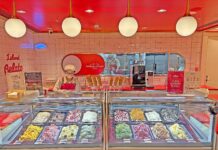On Tuesday, cosily tucked into page 16, the New Zealand Herald reported Fonterra’s proposed sale of its flagship brands including Anchor and Mainland to the French company Lactalis for $4.2 billion.
Farmers, said the headline without attribution, were likely to vote it the green light.
It’s not hard to see why, or who, might vote in favour but it probably wasn’t your friendly neighbourhood farmer who is not such a clunch as to think that a tax-free capital $400,000 payout and the prospect of having their livelihoods at the mercy of the planet’s biggest dairy conglomerate looks even remotely attractive.
It’s derisory, seen against Fonterra CEO Miles Hurrell’s $5.9 million annual salary (he’s our third highest-paid executive) and he and other executives stand to earn huge bonuses from the deal which retains a billion dollars for them to invest in other development.
In a recent post, Deputy Prime Minister Winston Peters asked if it was true that Hurrell plans to leave the company after this deal is done, which would beg the question of Fonterra executives’ long-term interest in its success and their claims that growing their own brands was beyond them.
“A Fonterra executive told us it would cost “billions,” but this is rubbish,” said Peters. “Their new UHT plant in Edendale is in the tens of millions. They already have partnerships in New Zealand to process high-end milk in Hawke’s Bay and package milk powder in Christchurch. There are investors and companies lining up to help Fonterra grow in New Zealand.”
“Anchor is a flagship brand, with a legacy built by generations since 1886 and more than 130 years of marketing New Zealand milk to the world, developing the products, building customer and consumer trust. For $4 billion, we are giving it away,” he said.
The proposed sale, on a disingenuous 50 percent vote of shareholders, comes after former prime minister John Key opened up Fonterra to non-farmer investor shareholdings in 2010. Since then capitalist interests have diluted farmer power, sharemilkers are functionally extinct in our rural landscape and marauding capital has spawned massive amalgamations of farms and power structures. All of it a long, long way from the farm gate.
For as long as I have been in journalism, we as a nation have debated whether we remain primary producers slogging to export bulk raw produce or develop our own processing industries to get bigger bucks overseas and maintain strong local economies.
Fonterra should have been a great success story. Monstrous CEO salaries might be a clue.
In the event, our “she’ll be right” culture didn’t hold up against decades of apple and pear marketing boards, forestry and logging interests, freezing works closures in company towns, quota fishing that killed off Waiheke’s local co-op and the sale into mostly-Chinese ownership of 170-year-old Wrightson NMA, with its intellectual property also going back to 19th-century stock and station agencies that were crucial to New Zealand’s primary industries
All of them built up by New Zealand farmers and taxpayers. Back at a new start.
How infuriating it is that our future generations – rapidly becoming an endangered species in our current shaky times – might never know home baking, such is the outrageous price of Fonterra’s home market butter and cheese.
And unless we bestir ourselves, nor will they be able to afford occasional quality beef and lamb, down a glass of whole milk, savour well-cured bacon or rich-coloured eggs, wear wool instead of plastic clothes, feed the children on fresh fruit or indulge in baking for the kids’ school gala.
Unless we turn back the current austerity and punitive legislation, we’re down a nasty rabbit hole and cannot win unless by taking a few leaves out of the past or from different and older cultures.
I have never spun wool off my sheep and shy away from the butchery process. I once, in the early penury of child raising, shot rabbits for the pot on a coal range set up in what’s now the front garden but tanning a sequence of unsuccessful sheepskin rugs? Not so good.
On the other hand, since we appear to be going backwards, we have our history. When needed, Waiheke farmers set up their own abattoir at Owhanake, the island milkman’s cows grazed on what is now Te Huruhi Recreation Reserve, the chairman of the county council ran a clothing factory, councillor John McCallum’s barges provided quality bluestone for foundations for the roads and clay was for pots, not roads.
Cars had tyres stuffed with hay and many bays had steamer wharves. A Dalmatian family tended a vineyard and supplied eating establishments on the Auckland waterfront with port. So energetic!
The lesson from this retrospective summary is the engagement of it all. Startlingly social, infinitely hard working, innovative and pragmatic in a hard new world and essentially generous and inclusive. Self-pity didn’t come into it.
Any or all of those things can be resurrected to fill the void of endemic self-concern that we are coming to know as brain rot.
• Liz Waters
© Waiheke Gulf News Ltd 2025





